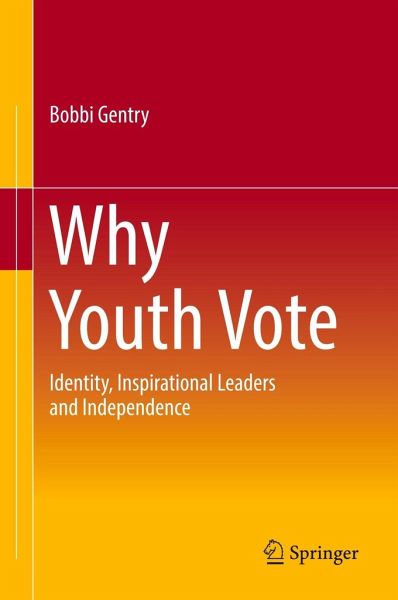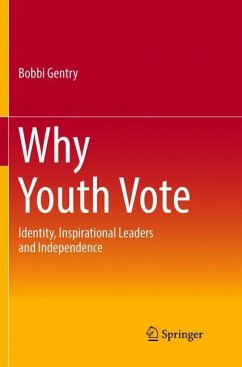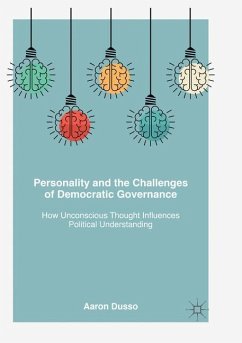
Why Youth Vote
Identity, Inspirational Leaders and Independence
Versandkostenfrei!
Versandfertig in 6-10 Tagen
76,99 €
inkl. MwSt.
Weitere Ausgaben:

PAYBACK Punkte
38 °P sammeln!
This book examines the reasons why young people vote. Viewing political behavior through a psychological lens, this book uses psychological developmental models to test the theory of political identity development and explain how and why young people vote. Rather than studying why young people do not vote, as the majority of the literature does, the book discusses the mechanisms and purpose behind youth voting. Themes of the text include identifying how political identities develop in young people, how leaders can contribute to identity development, and how we can explain differences between y...
This book examines the reasons why young people vote. Viewing political behavior through a psychological lens, this book uses psychological developmental models to test the theory of political identity development and explain how and why young people vote. Rather than studying why young people do not vote, as the majority of the literature does, the book discusses the mechanisms and purpose behind youth voting. Themes of the text include identifying how political identities develop in young people, how leaders can contribute to identity development, and how we can explain differences between young Independents who will vote and those who will not. The first chapter engages the reader with the background for each theoretical element of the book and develops the argument for the book as a whole. Three major substantive chapters discuss and test the theories of political identity development, political leadership as identity role models, and how we misunderstand political independence by not taking into account why young people might choose to identify as an Independent. The final chapter discusses implications for upcoming elections and how this research might better inform people and institutions interested in increasing youth turnout to reformulate their approach. An overarching discussion of identity and the political components of identity development, this book will be of interest to political scientists studying public opinion and voting behavior, campaigns and elections, and political psychology, as well as practitioners such as civic engagement and youth voting groups who wish to engage young people in the political process.












